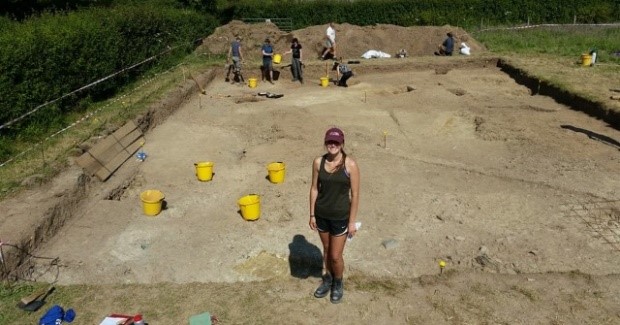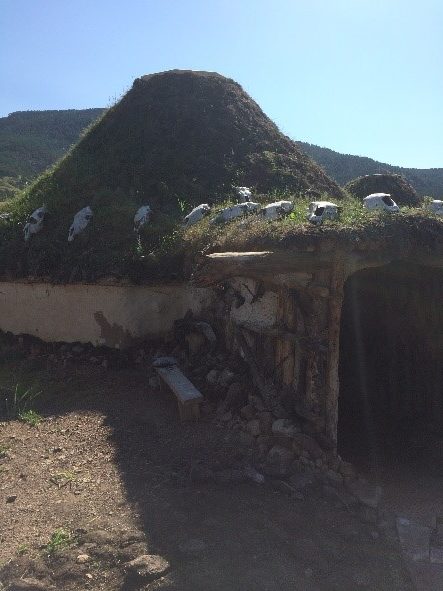My name is Sarah Barakat and in October 2020 I will begin my QUADRAT DTP PhD at the University of Aberdeen. My PhD will focus on reconstructing past faunal movements using multi-tissue sulphur and strontium isotope analysis and isoscape modelling. While I have used strontium isotope analysis in past work, I am excited to explore sulphur- an underused isotope which has potential to greatly benefit migration studies.
I am originally from Louisiana, but during my second year of university in the states I went on a year abroad in the UK and never returned home. In the UK I found a love for archaeology and doing scientific research which made me want to pursue a PhD.

I completed my undergraduate degree in Archaeology in 2019 and will finish my MSc in Bioarchaeology (zooarchaeology) at the University of Exeter by the end of August 2020. Both of these projects focus on better understanding seasonal migration patterns of the first husbanded horses in Eneolothic Kazakhstan using strontium and oxygen isotope analysis. This work has allowed me the chance to travel to various location across Kazakhstan and present my research at ‘The Botai Culture and other Eneolithic monuments of Central Asia’ Conference at Al-Farabi Kazakh National University.

In addition to my isotope work at the University of Exeter, I have also been on two palaeoenvironmental reconstruction projects. The first project analysed charcoal from a mammoth dwelling at Kostenki 11, a Russian Palaeolithic site. The aim of this project was to better understand what trees could survive in the Mammoth Steppe environment by identifying species of charcoal and studying width of the tree rings. The second project analysed phytoliths at a rock shelter in Colombia which dates to 12,000 cal BP. In this project I identified phytoliths over a 12,000 year record to understand how the earliest inhabitants of the Colombian Amazon adapted and modified the biodiversity of today’s Amazon Rainforest.
Doing a PhD felt like the most natural step for me to take to advance my career in research; so, during my masters degree I began searching for PhDs which mentioned faunal movement and isotope analysis. When I found this PhD which focuses on studying past movement with strontium isotopes as well as exploring a lesser used isotope, I was over the moon and knew I had to apply. I am really excited to start my PhD and to extend my work to other location across the world as well as to meet other QUADRAT students and to learn about their research!





















































